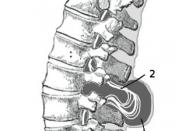No one is immune to birth defects, yet not everyone is equally susceptible. Birth defects are not merely a medical problem. They have profound effects on the social and psychological well being of their family and friends.
In the normal course of fetal development, cells migrate to their appropriate destination so that organs and limbs form where they should. Usually, the genes perform flawlessly, but mistakes can and do occur. Some of the most common birth defects results from the interaction between one or two abnormal genes out of 100,000 that make up who we are. This is caused by the genes parents pass on or effected by drugs and alcohol upon the fetus of a new born child.
Down's syndrome, the most common genetic disease formerly known as mongolism, 'occurs one in every six hundred births throughout the world' ( Storm 102). It is caused by chromosomal error, where there is an extra chromosome 21.
Instead of have two chromosomes as does a normal individual, there are three. These children's features include up slanted eyelids, depressed foreheads, hearing loss, dental problems, poor speech development, heart disease and intestinal problems where surgery is required. Parents feel very helpless and guilty in many of these and similar situations, feeling as if they are abnormal. However most can learn to walk, talk, dress themselves and eat. Special work programs are available that can help the child reach their education level. Also these work programs help takes off the many stresses facing parents. They no longer have to go it alone.
Tay Sachs disease is another selective genetic disorder that destroyed nerve cells. This causes mental retardation, loss of muscle control and death. Children who inherit an abnormal gene from both parents will inherit the decease. The carrier parents have one normal gene...



Comment
this was an good essay. i liked the way you used an example to to explain the effect of sickle cell anemia. backgroud reseaerch was also good. well done
5 out of 5 people found this comment useful.